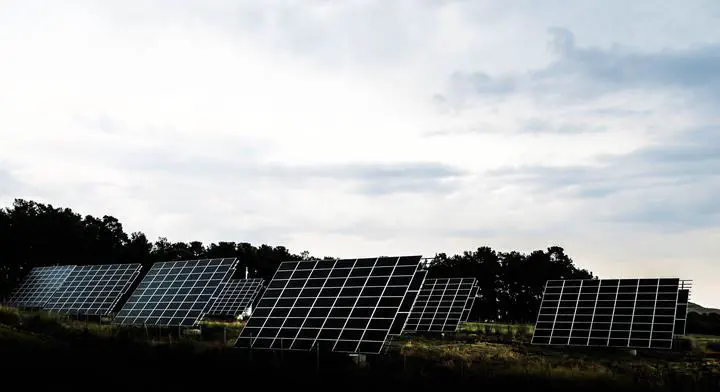CRESUM-HYRES
 Photo by Jason Blackeye on Unsplash
Photo by Jason Blackeye on UnsplashSummary
Can we electrify rural areas in developing countries with low-cost, resilient solutions? In this project we investigate the techno-economic aspects of developing resilient Microgrids for the electrification of rural communities in Low- and Middle-Income Countries (LMICs).
The research follows an integrated approach to ensure that the systems designed are maintainable, have good longevity with low cost, meet diverse community energy needs and are resilient to natural hazards. We will try to enable the development of sustainable and resilient energy distribution grids in rural communities of Tanzania, Uganda and Republic of the Congo, where currently at most 10% of the rural population has access to electricity. We will achieve this by designing a scalable low-cost MG infrastructure based on a novel planning methodology that incorporates real-time operational strategies and sustainable generation flexibility at the system design stage to reduce the investment requirements and increase sustainability.
Background
Globally, one in five people still lack access to modern electricity, and 3 billion people rely on traditional fuels for heating and cooking. This project seeks to contribute to UN Sustainable Development Goal 7, which is to “improve access to affordable, reliable, sustainable and modern energy for all”.
Small-scale renewable energy technologies are now available at an affordable price, and it is no longer necessary to have a costly centralised energy infrastructure, particularly one powered by fossil fuels with the consequent influence on climate change.
Project Details
Grant: £1.26m EPSRC-funded
Dates: May 2018 – April 2021 (3 year project)
Principal investigator: Professor Jon Lovett (University of Leeds)
Co-investigators: Dr Petros Aristidou, Professor Kang Li, Professor Peter Taylor, Dr Rolf Crook, Dr Valerie Dupont, Professor Jenny Jones, Dr Hu Li, Dr Andrew Ross, Ms Mary Suzan Abbo (CREEC), Dr Consalva Msigwa (DIT), Professor Bernard M’Passi-Mabiala (UMN), Dr Elizabeth Rianawati (RDI)
Post-doctoral research assistants: James Hammerton, Cheng Wen, Shahab Dehghan
Project partners:
- Centre for Research in Energy and Energy Conservation (CREEC), Uganda
- Dar-es Salaam Institute of Technology (DIT), Tanzania
- Université Marien Ngouabi, Congo-Brazzaville
- Resilience Development Initiative (RDI), Indonesia
Objectives
- Develop a distribution system design methodology for resilient sustainable mini-grids that combines both the planning and real-time operational design into a single joint design stage
- Provide a sustainable, reliable and flexible generation pool for the mini-grids on the basis of a hybrid biofuel-solar system, modelling the availability of renewable resources capable of contributing to the mini-grid network and understand the capacity for integrated hybrid solutions to provide increased resilience
- Involve end-users in research, design, acceptance and adoption and ensure long-term sustainability and resilience through creation of the appropriate incentive structures to install and maintain the mini-grids
- Train 3 UK post-doctoral research assistants (two power and energy systems, one energy socio-economics) in holistic design methods for hybrid sustainable mini-grids
Research Approach
The research takes an integrated holistic approach, drawing on field data and experience in Africa to focus on actual needs and local realities. This ensures the development of micro-grid scenarios that can be applied to realistic situations. Taking this approach will lead to mini-grids designed to be maintainable, have good longevity with low cost, meet diverse community energy needs and be resilient to natural hazards.
Knowledge and experience drawn from the Indonesian Iconic Islands project (which looked at small-scale renewable energy on islands that can’t be reached by large-scale energy infrastructure) will be transferred to the design and implementation of micro-grids in the African context.
Key Research Outcomes
Our research has produced several significant contributions to microgrid planning and operation:
Planning and Design Methodologies
- Decomposition Strategy for Inertia-Aware Microgrid Planning Models: Addressing the growing penetration of converter-Interfaced Generators (CIG) and diminished inertia levels in electricity grids
- Data-Driven Two-Stage Distributionally Robust Planning Tool: For sustainable microgrids under uncertainty
- Robust Coordinated Expansion Planning Model: For wind farm-integrated power systems with flexibility sources using affine policies
Operational Optimization
- Microgrid Operational Optimization with Dynamic Voltage Security Constraints: Ensuring continuity of power supply during emergency islanding
- Resilient Operation of Microgrids: Optimization models for steady-state and transiently secure operation
- Enhancing Microgrid Resilience and Survivability: Under static and dynamic islanding constraints
Control and Market Mechanisms
- Data-Driven Local Control Design: Using off-line optimal power flow and machine learning techniques
- Active Distribution Grids Offering Ancillary Services: In islanded and grid-connected mode
- Rethinking Consumer-Centric Markets Under Uncertainty: A robust approach to community-based energy trades
- Delay-Robust Distributed Secondary Frequency Control: Enabling low-carbon future power systems
Case Studies and Applications
- Towards a Sustainable Microgrid on Alderney Island: Using a Python-based energy planning tool for remote communities
Impact
The people who will benefit from this research are those without access to modern clean energy supplies. It is estimated by the African Development Bank that over 645 million Africans (approximately 40% of the continent’s population) have no access to electricity. In general, the rural population is poorer than the urban and the economy is more hand-to-mouth or subsistence which does not allow for savings of money or obtaining assets. This means that many households cannot afford connection fees or even monthly electricity costs.
The innovations being researched by the programme are of the scale that can be taken up by small to medium scale entrepreneurs. This offers the potential for local private sector investment to contribute to filling the energy supply gap. Training courses in the project will include entrepreneurial skills and the project will include networking with entrepreneurs. The existing partnership platform has good links with local renewable energy businesses. They will be integrated into the project from the outset.
For more information, look at the project website.